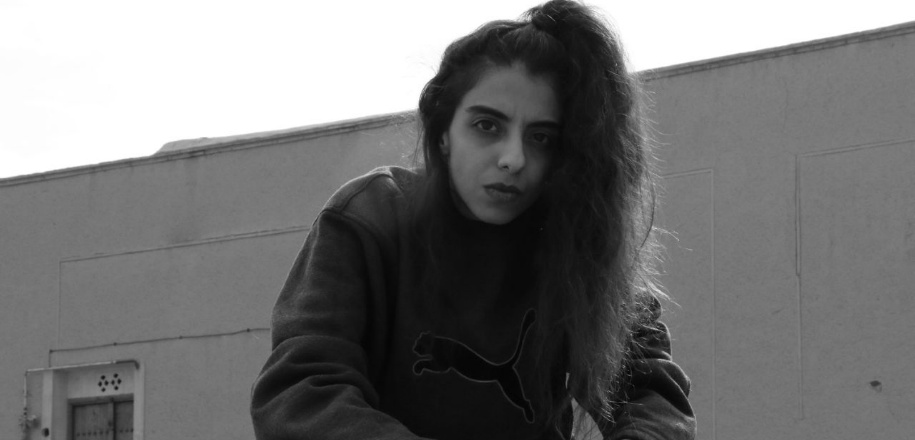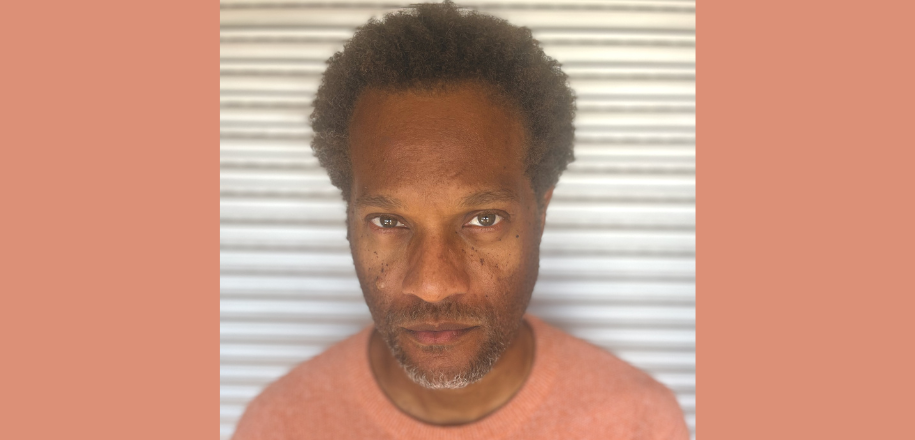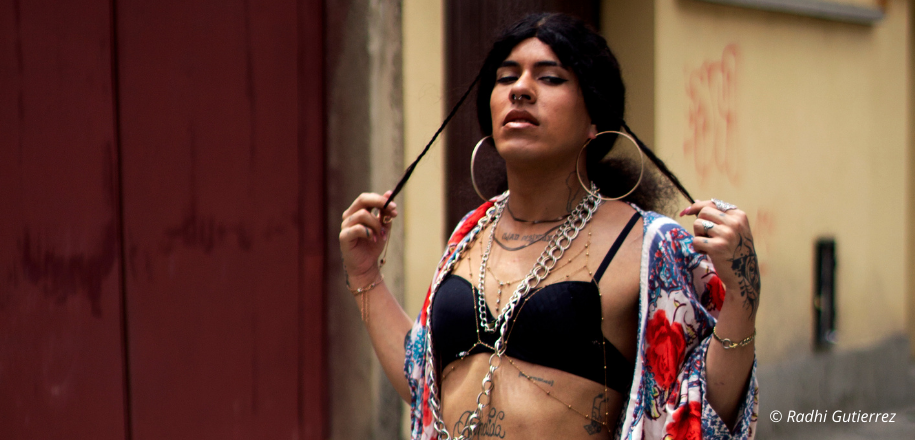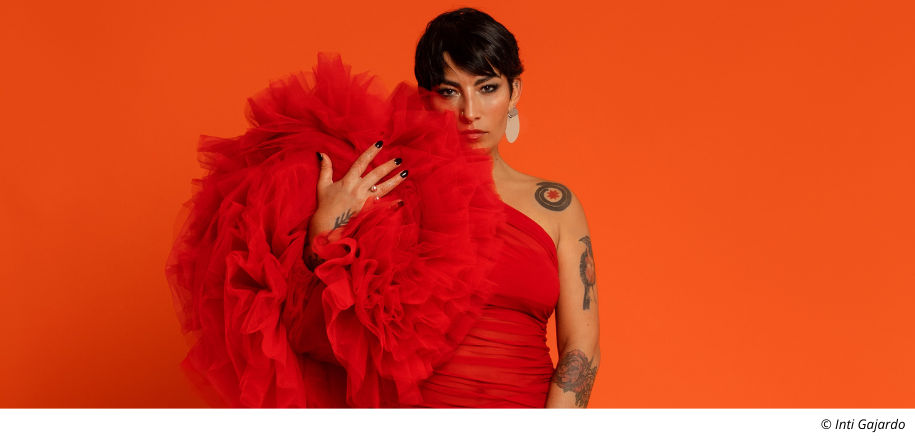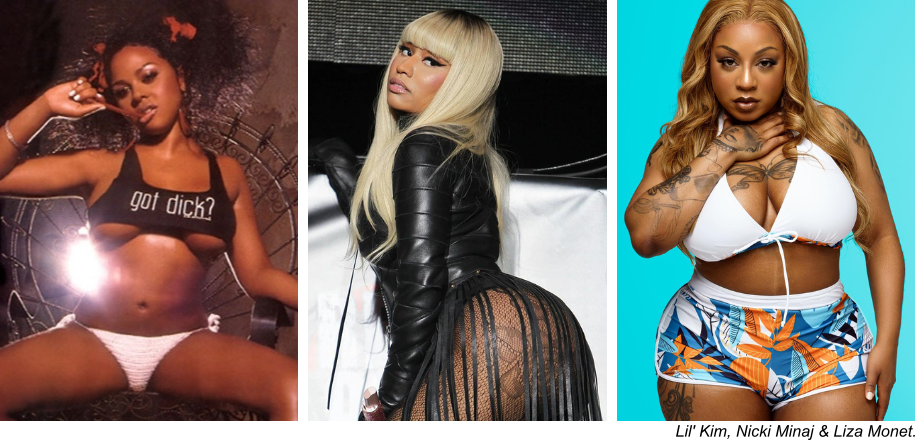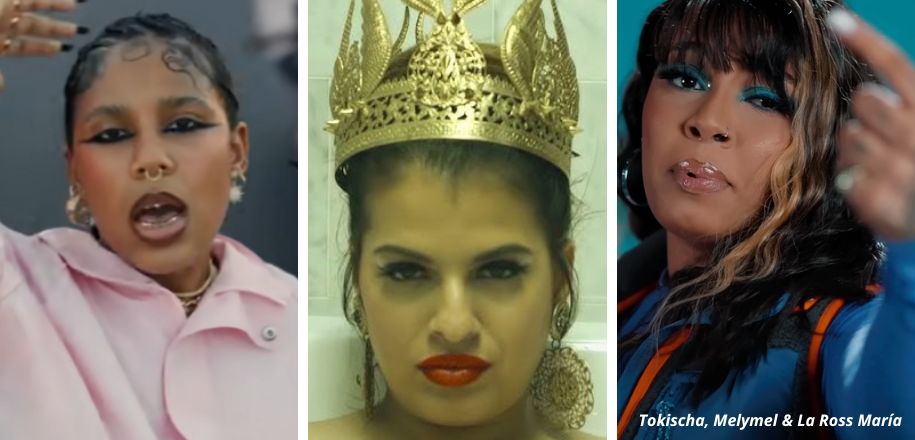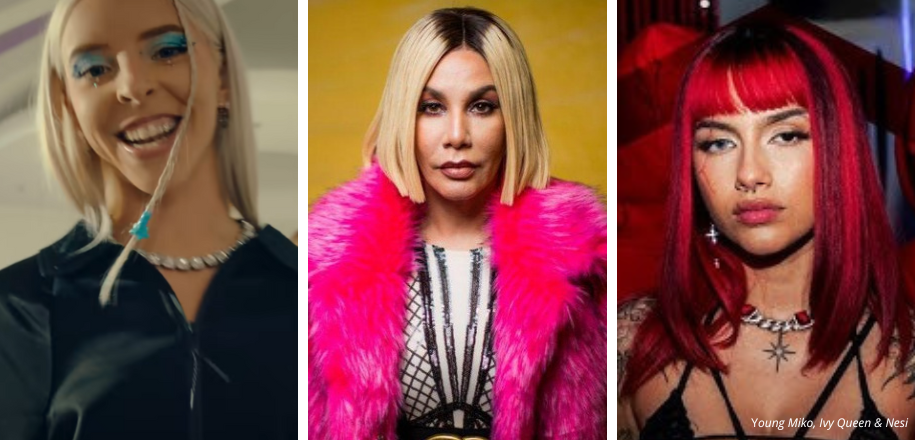A rapper and a beatmaker, Alexie Ivanovich was born in Isfahan, the third-largest city in Iran. At 17, she moved to Tehran to study hardware engineering at Tehran Polytechnic. Because of deep ideological conflicts, she dropped out of university and devoted her time to making music. She told us about her journey in hip hop and what it is like to be a female artist in her country, where rap is illegal and women face jail for singing.
How were you introduced to hip hop?
When I was in my late elementary school years, rap music was newly raised in my country, and instantly I got interested in it. I was introduced to literature at a very young age by my parents and I became intensely curious about this kind of poetry and music. Hip hop was a world full of adventures with the potentials to express passion for writing and inner thoughts through music. When I was in first grade of middle school, I wrote my first lyrics: a long funny verse about the NODET system (organization that recruits students for middle and high schools and aimed to provide a unique educational environment for exceptionally talented students, ed.) and its bugs and why our teachers were so mean.
Through the next upcoming years, I frequently listened and did some research, and everything became more serious. When I moved to Tehran, I met many people on the hip hop scene. Most of them were making music in their home studios, and they were amazed about how I rapped and my opinions about the subject. I was obsessed with writing more and more to reach the self-satisfaction stage about my skills and the whole picture.
Meanwhile, things were going quite messy and complicated at university. I studied many emcees and their verbal inventions, techniques, and different points of view. Spending many nights soul-searching YouTube and the internet for beats, getting together with friends, and long brainstorming hours and discussions. That period was a self-educating time in my life, which allowed me to learn and try any idea I had in mind. I came to myself when listening and writing turned to be an inseparable part of my days and nights, regardless of what I was doing or where I was.
You’re a rapper and a producer. Did you start both at the same time?
I focused on making beats after I released my EP. I experienced performing in different genres and sub-genres of hip hop and seeking something new for me, and yet original. I’m in touch with some great producers from here and other countries, and I always received beats from amateur to professional ones. Some of them are very talented, but they are not precisely what I want. So I decided to start making my stuff. Meanwhile, I can also hear something from an unknown producer and immediately catch the rhythm and start working on it.
“Everything I do comes from the spirit of fighting against forces that make unwanted limitations.”
Did you receive any musical training?
I learned the essentials of hip hop production from Badawi, the legendary producer from New York, and the fundamentals of audio mix and mastering from Ramin Pir, the owner of Australian Vivid Sounds Production. These two resources helped me get a broader and more specific picture of making music with what I knew from a few years of self-learning and self-analyzing music production.
How would you define your music?
My music inspires me to stay tough and stubborn. To remain strong in the hopeless time and place we are stuck in and fight with the harsh reality, which disappoints us in many unfair ways. When you can do something, but constraints and stupid boundaries won’t allow it to happen, you can either quit and stick to the norm or try to fix and push your ideas forward by creating new paths. Hip hop means the core engine of this philosophy for me. Everything I do comes from the spirit of fighting against forces that make unwanted limitations.
Through the years, this ongoing war shapes a hardcore attitude that leads me to create and express my desire to be free and fearless in art and music, and life. The fact that you should take all you have into battle to make of it what you will, hoping you can figure out as you go forward and make some sense of it. Being stubborn about who you are and against what tells you “to be anything rather than who you truly want.” Hip hop reminds us that you can and you will, wherever you are and what story you got. If you want it, you should try hard for it, and nobody can stop you from reaching the max.
You just released the track Bang. What does it talk about?
It reflects the rage and passion of a girl who chooses street culture in the conflict between the modern world, which is not quite likable for her, and traditional beliefs that she ignores totally. It’s about how serious I am in determining freedom of act and speech.
“We are not allowed to sing in public and people never hear the sound of music.”
I made the video in my hometown’s most religious part. I chose to perform there for many reasons. This beautiful and historical architecture matches the emotions I got in that specific period and position. It amazingly suits the violin sound in the beat. We are not allowed to sing in public, and people never hear the sound of music there, let alone rap. This shapes an artistic paradox that makes this experience unique and lasting. I had minimal time to record that video, and all the shots were taken only once.
Besides, no one has the guts to do the same and take such kind of risk. I’m talking about the courage and desires that shape a brave attitude I admire in many humans and artists that I respect.
What is the female hip hop scene like in Iran? As rap music is illegal there, it possible for female rappers to professionalize and make a living from their music?
We don’t have an official hip hop scene here. Rap music is illegal to show and perform in national media, and in general, singing for women is considered as a crime and leads to criminal conviction.
As a result, we do not have any concerts, registered labels, or official releases, and there is no patent for musical works. Usually, artists who sell their songs manage to do it independently via their websites or direct payment links. But it’s so limited.
Gaining from online streaming is also nothing much to make a living out of it; besides, we don’t have access to the international banking system to use accounts such as Paypal or visa card. They are abandoned to use for Iranians. It’s complicated and generates many problems when you earn dollars through a website, and then need to transfer and change them to Rials. It is not easy for anyone to continue their career without any outcome.
“A female rapper will most likely face immediate rejection.”
Women who got attitude for rap are far less in numbers than men here, and it’s not a simple job to fit in between the mass number of other rappers. Dealing with audiences could be complicated too.Female voices are new for them when it comes to rap. Many people underestimate the quality of your lyrics without any further objection or knowledge, based on the unfounded judgment that a girl is not good enough to invent complicated rhyme schemes or doesn’t have a proper to deliver the message, or generally females have a superficial approach to hip hop.
A female rapper will most likely face immediate rejection even if she is talented. You should be confident enough about the whole subject and try hard on paper to reach at least far above the average standard to mash their rotten ideas.
Do you consider yourself a feminist? If so, how would you define your feminism?
I don’t think so. Sexuality doesn’t define all I’ve got in mind. As a woman, you should try twice than others in some cases, but that’s a gift and inspiring to determine twice. All of us are stuck in a system that improvement and success procedures are not based on individual competency. Man or woman, you should keep trying, and on many occasions, you are mistreated to get what your efforts really deserve.
“I live in a place where we must fight to survive every day.”
I live in a place where we must fight to survive every day. I’m against the roots of ideas and terms that made this world and my nation what it is today. Half of Iran’s population doesn’t have the very primary rights in personal and social life, which makes the other half be satisfied and assured only with prior rights. It’s a massive deception. The insecure economical situation and inflation severely reduced social welfare and life satisfaction, making the majority of people poor day after day. The dysfunctional governing has failed in managing these crises.
As a straight result, the family foundation becomes more powerless than ever to supply life necessities, let alone raising a generation with open minds and ideas to stand up for change or revolution. In my position, the battlefield is not justice for women but justice for all, justice for life.
Who are your female role models?
I saw many influential women in my life in different areas. Each one uniquely impressed me. I appreciate any strong, independent woman who goes for her passion, tries to raise her abilities and respects herself.
What are your upcoming projects? How does the coronavirus pandemic impact your activity?
The pandemic has postponed some of my plans due to travel restrictions and made everything much slower. Besides some collaborations that I’m genuinely interested in, I’m first announcing here that I have an album coming in the next few months.
What do you think about Madame Rap? What should be changed or improved?
It amazes me how far hip hop can go, and the variety of artists is fantastic. They are beautiful and impressive in their cultures wherever they are and seeing them makes me proud. You can be more specific about their message and lyrics by adding the translation in your posts. Blessings, and keep going. Art is still the best place for rising and finding great minds and pure souls.
Find Alexie Ivanovich on Instagram, Twitter and Soundcloud.

